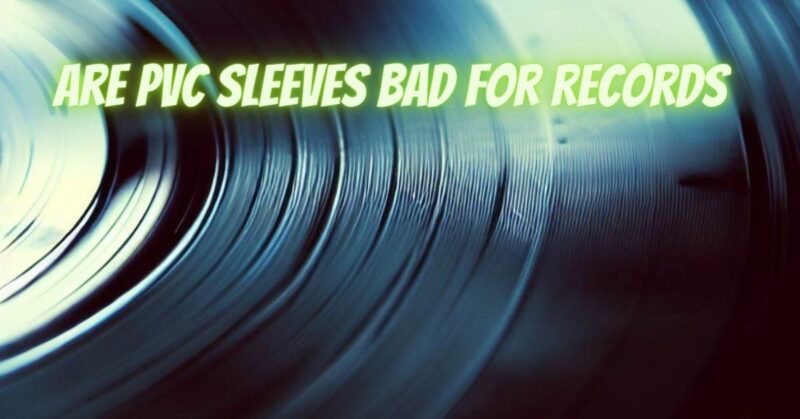Vinyl records have made a remarkable resurgence in recent years, appealing to audiophiles and music enthusiasts alike. As collectors and enthusiasts invest in preserving and maintaining their vinyl collections, one topic that often sparks debate is the use of PVC (polyvinyl chloride) sleeves for protecting and storing records. PVC sleeves are commonly used to house vinyl records, but concerns have arisen about their potential impact on the condition and longevity of these cherished musical artifacts. In this article, we’ll explore the pros and cons of PVC sleeves and examine whether they are indeed bad for records.
Understanding PVC Sleeves:
PVC sleeves are widely available and affordable, making them a popular choice for vinyl collectors looking to safeguard their records. These sleeves are made from polyvinyl chloride, a type of plastic that is flexible, transparent, and resistant to moisture and dust. PVC sleeves are available in various sizes to accommodate different types of records, including 7-inch singles, 10-inch EPs, and 12-inch LPs. They offer a clear view of the album cover artwork and label, which adds to their appeal.
The Pros of PVC Sleeves:
- Affordability: PVC sleeves are relatively inexpensive, making them an attractive option for collectors with large vinyl collections.
- Clarity: The transparent nature of PVC sleeves allows the album artwork and labels to be easily visible, enhancing the overall presentation of the record.
- Protection from Dust and Moisture: PVC sleeves effectively shield records from dust, dirt, and moisture, helping to maintain their physical condition.
- Easy Identification: With the album cover and label visible, it’s easier to identify records without having to remove them from their sleeves.
The Cons of PVC Sleeves:
- Chemical Reaction: PVC is known to release chemical gases over time, which can lead to a phenomenon known as “off-gassing.” These gases can interact with the vinyl record and potentially cause damage, such as warping, discoloration, or a chemical reaction that affects the vinyl’s playing surface.
- Softening and Stickiness: Over time, PVC sleeves may become softer and sticky, which could cause records to adhere to the sleeve. This can result in difficulties when removing or inserting records and potential surface damage.
- Acid Migration: Some PVC sleeves are manufactured with additives that may contain acidic components. If these sleeves come into direct contact with the record’s surface, there’s a risk of acid migration, which can lead to vinyl degradation.
Alternatives to PVC Sleeves:
Given the potential drawbacks of PVC sleeves, collectors often seek alternatives that provide protection without the associated risks. Some popular alternatives include:
- Polyethylene (PE) Sleeves: These sleeves are less likely to interact chemically with vinyl records. They are clear, durable, and do not become sticky over time.
- Polypropylene (PP) Sleeves: Similar to PE sleeves, PP sleeves are chemically stable and offer good clarity. They are less likely to become sticky and are a safe option for long-term storage.
- Paper Sleeves: Acid-free paper sleeves are another option. They protect records from dust and can be used inside outer sleeves for added protection.
While PVC sleeves are convenient and affordable, they come with potential risks due to chemical reactions, off-gassing, and adhesive issues over time. These concerns have prompted many collectors to consider alternative sleeve options, such as polyethylene or polypropylene, which offer protection without the potential drawbacks of PVC. As a vinyl enthusiast, it’s important to strike a balance between preserving the physical condition of your records and showcasing their visual appeal, all while prioritizing their longevity and overall health.


